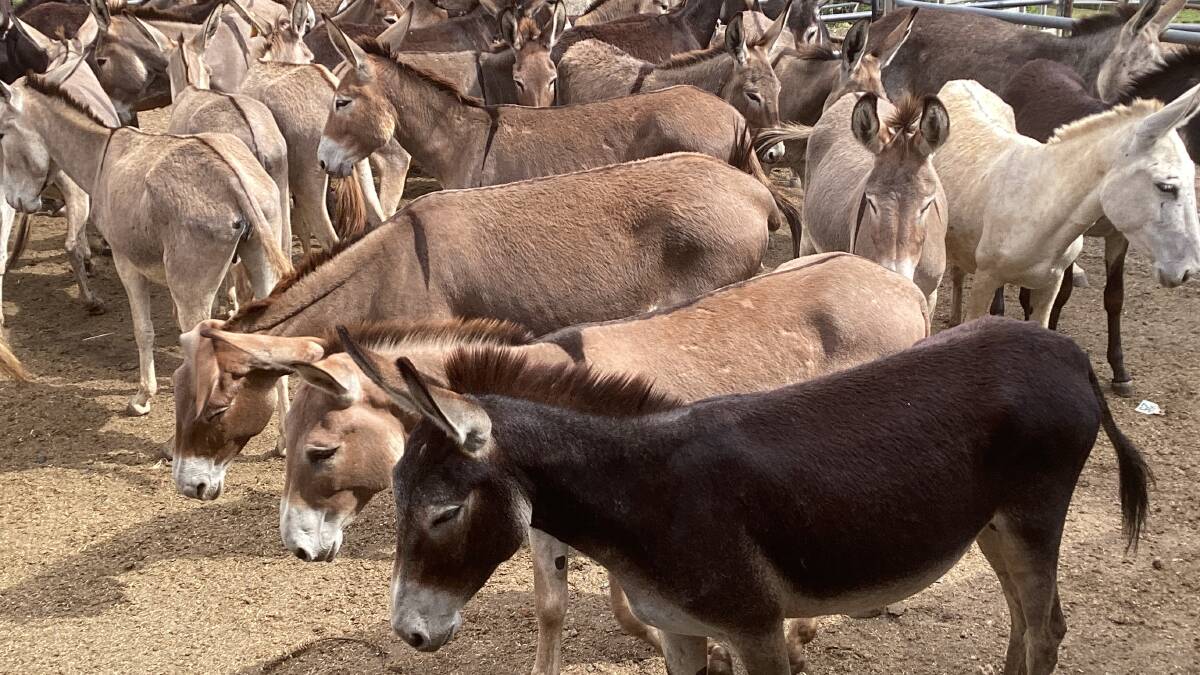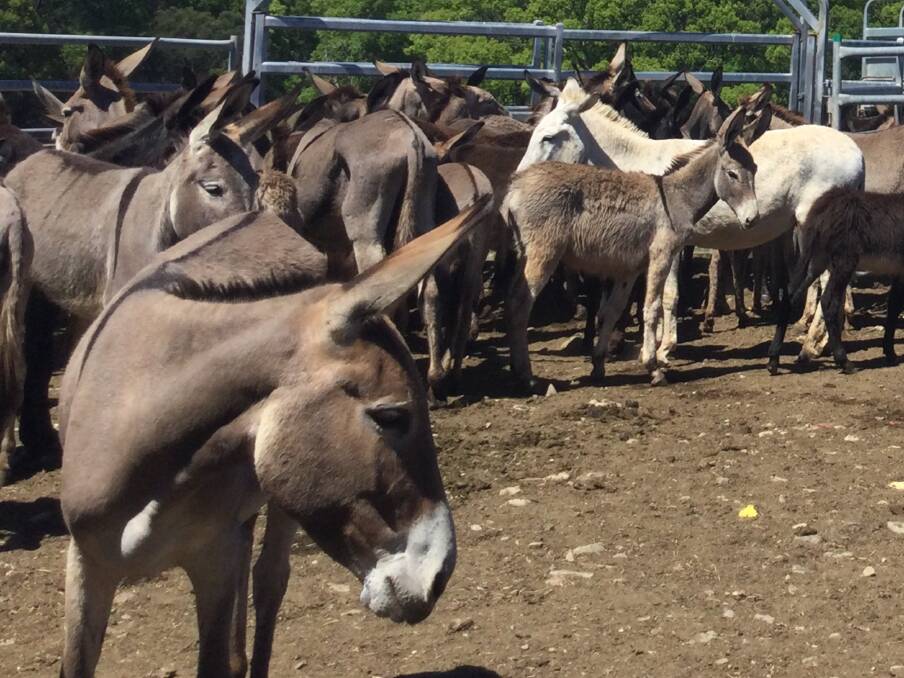
An unlikely hero is emerging as a way to protect stock from wild dogs, with producers using guardian donkeys to safeguard their livelihoods.
Subscribe now for unlimited access to all our agricultural news
across the nation
$0/
(min cost $0)
or signup to continue reading
Eliezer Robinson, Robinson Livestock, Coramba, first started using donkeys a few years ago when he was losing massive amounts of stock to wild dogs. They were cunning and the leader of the pack had evaded shooters, he said.
"We were getting hammered by dogs here," he said.
"They killed all the sheep and they were into the cows."
"I was sleeping in my ute and everything, waking up every couple of hours with an alarm - it got that desperate."
"These big pack of dogs were into our cattle - it stopped when we got these two donkeys."
Donkeys were extremely protective of their herd or flock and would chase away or attack predators, he said.
Follow initial success, Mr Robinson has since trucked about 700 head of unhandled, but relatively quiet stock from stations in the NT, WA and SA, which he has sold to buyers across NSW, Queensland and Victoria.
Producers often made the mistake of putting too many donkeys in a herd at once, he said. He instead introduced one animal at a time and gave them a couple of weeks to bond before introducing another.
It was also important to keep cattle and sheep separate, as donkeys tended to prefer cattle if given the choice.
"Because that donkey has got to have friends, or family, they'll try and bond as quick as they can," he said.
"They're trying to get to be mates with them on the first day."
He said they were also smart enough to leave working dogs alone while he was nearby, but they were on guard as soon as a dog entered the paddock alone.
"One day I sent my dog down and he went ahead and I was coming down through the trees," he said.
"You could see the donkeys had him bailed up but they kept looking back over to where I drive down to see if I was coming.
"As soon as they looked over and saw me they all started wandering off."

The donkeys are trucked across by McCallum's Transport. After arriving in Mr Robinson's holding yards, the donkeys are given a week to recover before being wormed and checked over.
Mr Robinson said he now trialled them on sheep first to ensure they would be suitable.
"Not every donkey likes sheep," he said.
"Out of 700 I've had three come back and swap over for another donkey because they donkey was aggressive to the sheep, or didn't want to know about the sheep.
"We've got a feedlot with lambs so we put them in the feedlot paddock.
"The donkey that is going up and grabbing the sheep or chasing them, its out. It's going to be a cattle donkey.
"The others, if they're following those sheep around we'll try a few movements, or put a dog in there real quick, and every time it comes at the dog we know it's going to make a sheep donkey."
Producers had been sceptical at the start but were beginning to see their value, he said. Despite the demand, Mr Robinson said accessing those animals in remote areas was becoming increasingly difficult and he planned to breed up his own stock instead.
It was disappointing that people remote areas viewed them as a pest and targeted them in aerial shooting campaigns, he said.
"They're the most intelligent, lifesaving animal you would ever see," he said.
"I feel like I can go to sleep at night and know there's eyes on everything I own.
"There's no traps, no shooting, no baiting, and no chemicals. We've had great success with it."
Eric Fraser, livestock and genetics manager at Sumo Wagyu, first introduced donkeys on his own property near Kempsey in September 2020.
During marking there were about 20 calves with missing ears or dog bites, he said.
He had seen Mr Robinson's posts on social media about the value of guardian donkeys, and although he was initially unsure if it was a marketing ploy, he contacted him to explain what he needed.
He bought five donkeys and introduced them one at a time to his herd of 1400 cows on a 560 hectare paddock, with a further five going to other areas.
"We went back in January and did the second round of calf marking there and there wasn't a calf with a missing ear, or dog bites on it or anything," he said.
"That year was the last year we had any trouble with dingos."
By the end of 2021 he had also introduced donkeys to Sumo's properties around Grafton following stock losses from wild dogs.
Some of the staff were unsure to begin with but the investment was paying off.
"One hundred and ten per cent they are the best thing I've ever done for dingo control," he said.
"We had blokes there shooting dogs, they were going out night after night after night but they might shoot one dog a week. It wasn't worthwhile."
Mr Fraser said he had never needed to trim their feet and just ensured they were wormed once a year. He had jacks and jennies and weaned the foals similar to a horse so they had some basic handling.
He had recommended donkeys to other producers.
"We sold a bull there this year for $100,000 - that could have been a $100,000 calf that the dog killed," he said.
"Even if you lost three weaners at $500, or three weaners at $300, if that donkey saves them that year and she saves them the year after, it's safe insurance."


